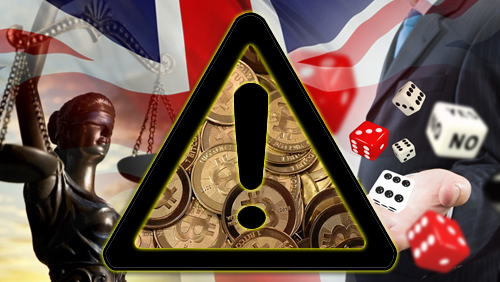 The UK Gambling Commission (UKGC) says it has warned Bitcoin operators that gambling offerings to UK residents require a license, even if conducted through alternate currencies.
The UK Gambling Commission (UKGC) says it has warned Bitcoin operators that gambling offerings to UK residents require a license, even if conducted through alternate currencies.
The UKGC website published an FAQ with the title, “Why has the Gambling Commission written to Bitcoin operators?” in which the UKGC expressed its concern over illegal gambling operators providing services in the country. The UKGC insists that “an operator needs to be licensed by the Gambling Commission regardless of where they are located in the world, if they provide facilities for gambling to consumers in Great Britain.”
The commission also confirmed that it wrote to a number of operators which had been offering “prizes of money or money’s worth to gamblers,” stating that as Bitcoin comes under the category of money’s worth, therefore any operator offering this facility to gamblers in Britain requires a UK operating license or they are acting illegally.
UKGC CEO Jenny Williams said that the Commission wrote to these operators who are either advertising gambling illegally or illegally offering gambling products to consumers, or both.
“The Commission neither prohibits nor encourages bitcoin – we are interested only in ensuring the proper regulation of gambling products consumed in Britain. The currency is almost irrelevant as all operators need to satisfy themselves, and us, that they can fully meet all our requirements – particularly the requirements that ensure crime is kept out of gambling and consumers are protected,” added Williams.
The UKGC’s ruling is similar to Her Majesty’s Revenue & Customs (HMRC), which also considers bitcoin like money in exempting its purchase from VAT.
In 2013, the UK government had suggested that bitcoin-based businesses would not have to register with regulators, stating that bitcoins wouldn’t be treated as money, but HMRC disagreed and had classed bitcoins as “single purpose vouchers,” rendering any sales of them liable to a value-added tax.
Definition of bitcoin may differ depending on jurisdictions. In the US, bitcoin is considered an equivalent of money when it comes to money services license requirements but it is considered to be property for tax purposes.
In July 2014, the Isle of Man Financial Supervision Commission indicated that digital currency businesses on the island would not be subject to a conduct of business or prudential regime by the commission unless they engage in activities regulated under the Financial Services Act of 2008, such as money transmission services.